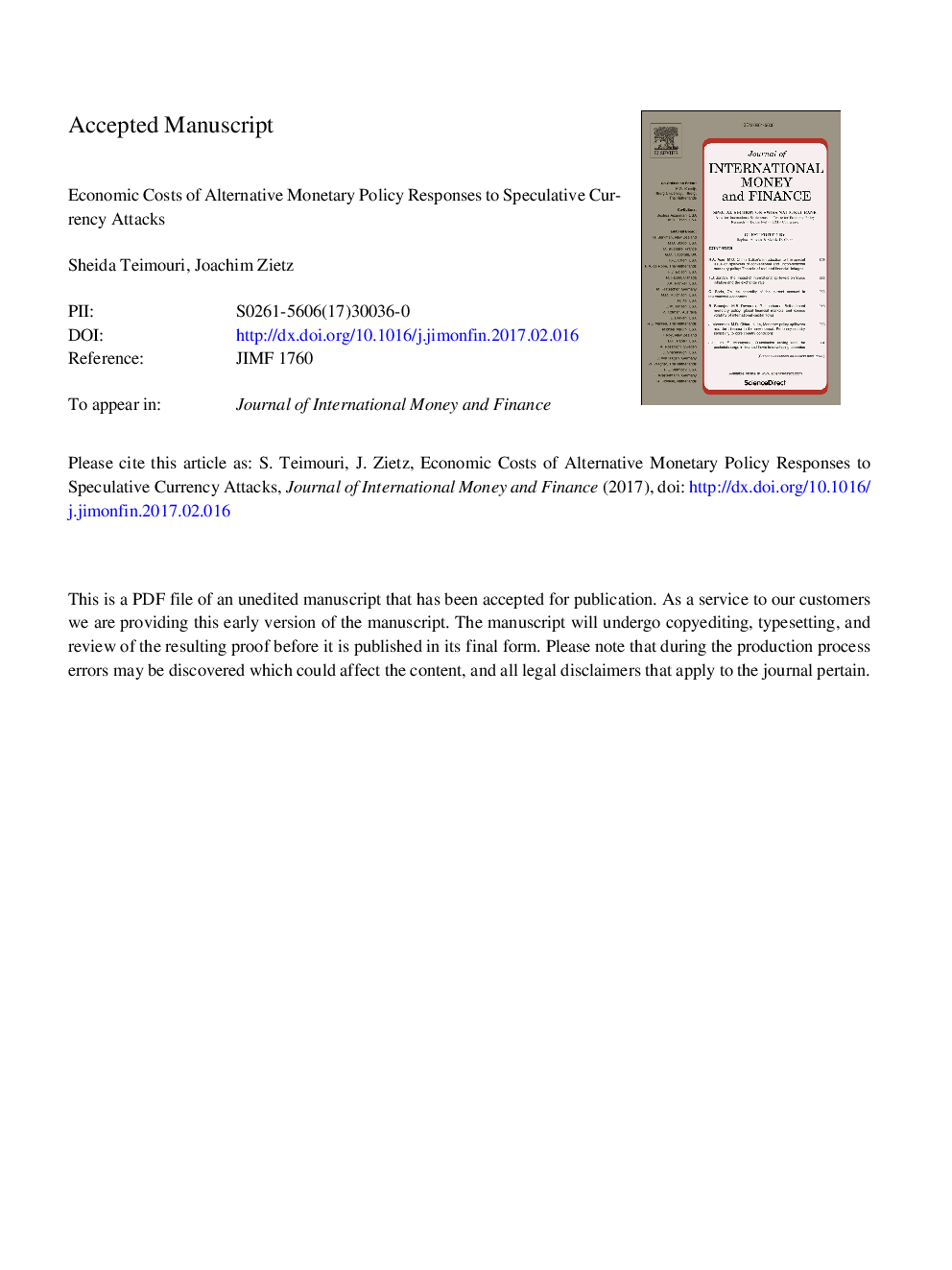| Article ID | Journal | Published Year | Pages | File Type |
|---|---|---|---|---|
| 5101112 | Journal of International Money and Finance | 2017 | 43 Pages |
Abstract
The outcome of a speculative attack on the foreign exchange rate can be classified into three cases: (i) immediate depreciation of the nominal exchange rate, (ii) successful defense, or (iii) failed defense. This paper explores which of these outcomes yields the lowest cost in terms of output and unemployment in the short and medium run. Ex-ante the outcome of a speculative attack is uncertain, therefore the appropriate response of monetary authorities to a speculative attack depends on the cost of an immediate depreciation compared with that of the expected outcome of a currency defense. Our empirical analysis focuses on a sample of 73 emerging and developing countries over the 1960-2011 period. Our results indicate that an immediate depreciation is the policy response that is associated with a lower expected output loss and unemployment in the short run and it tends to be expansionary in the medium run. A defense, if successful, entails insignificant costs in the short run but, unlike an immediate depreciation, a successful defense is not expansionary in the medium run. If a defense fails, large output losses and an increase in unemployment ensue, at least in the short run.
Related Topics
Social Sciences and Humanities
Economics, Econometrics and Finance
Economics and Econometrics
Authors
Sheida Teimouri, Joachim Zietz,
